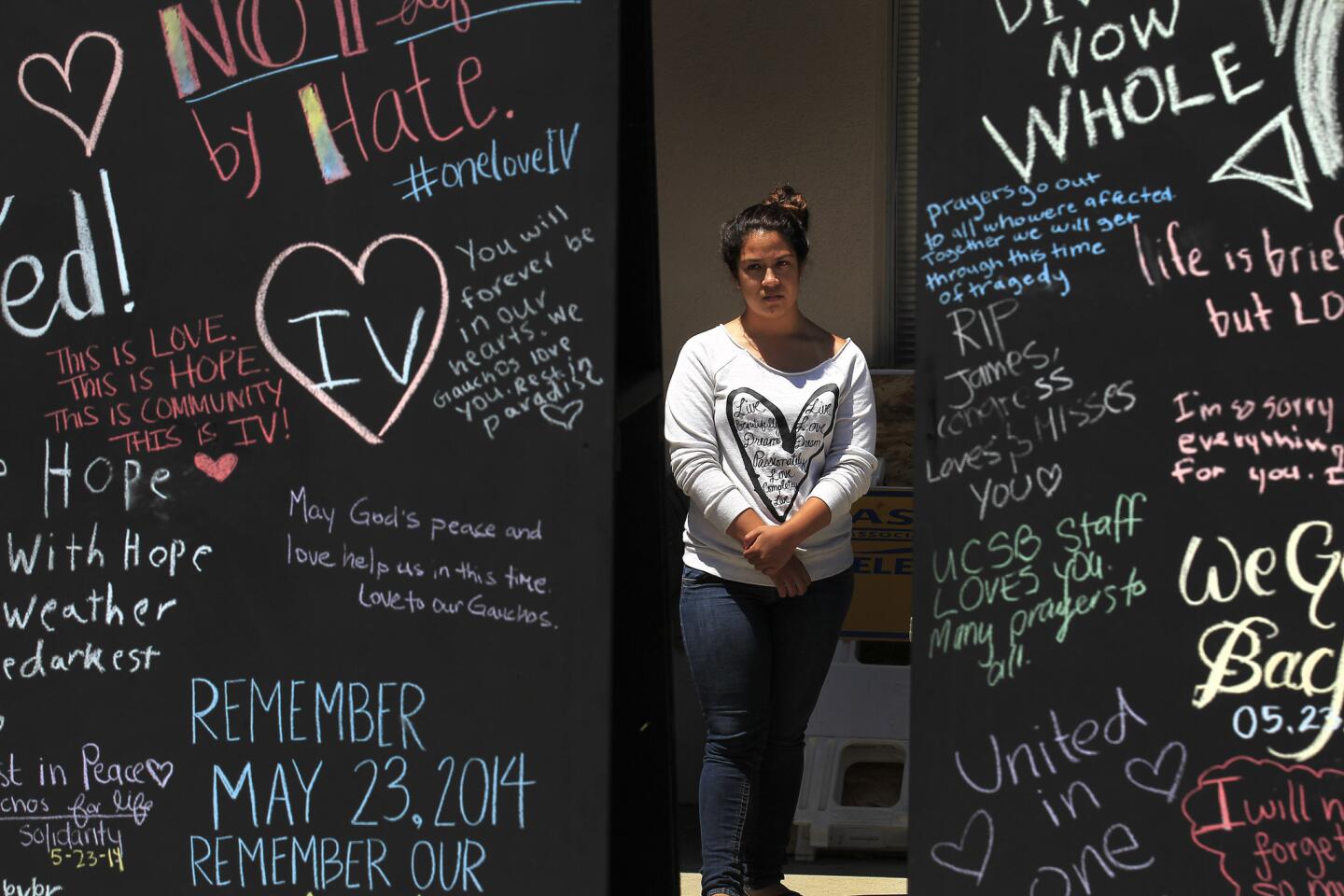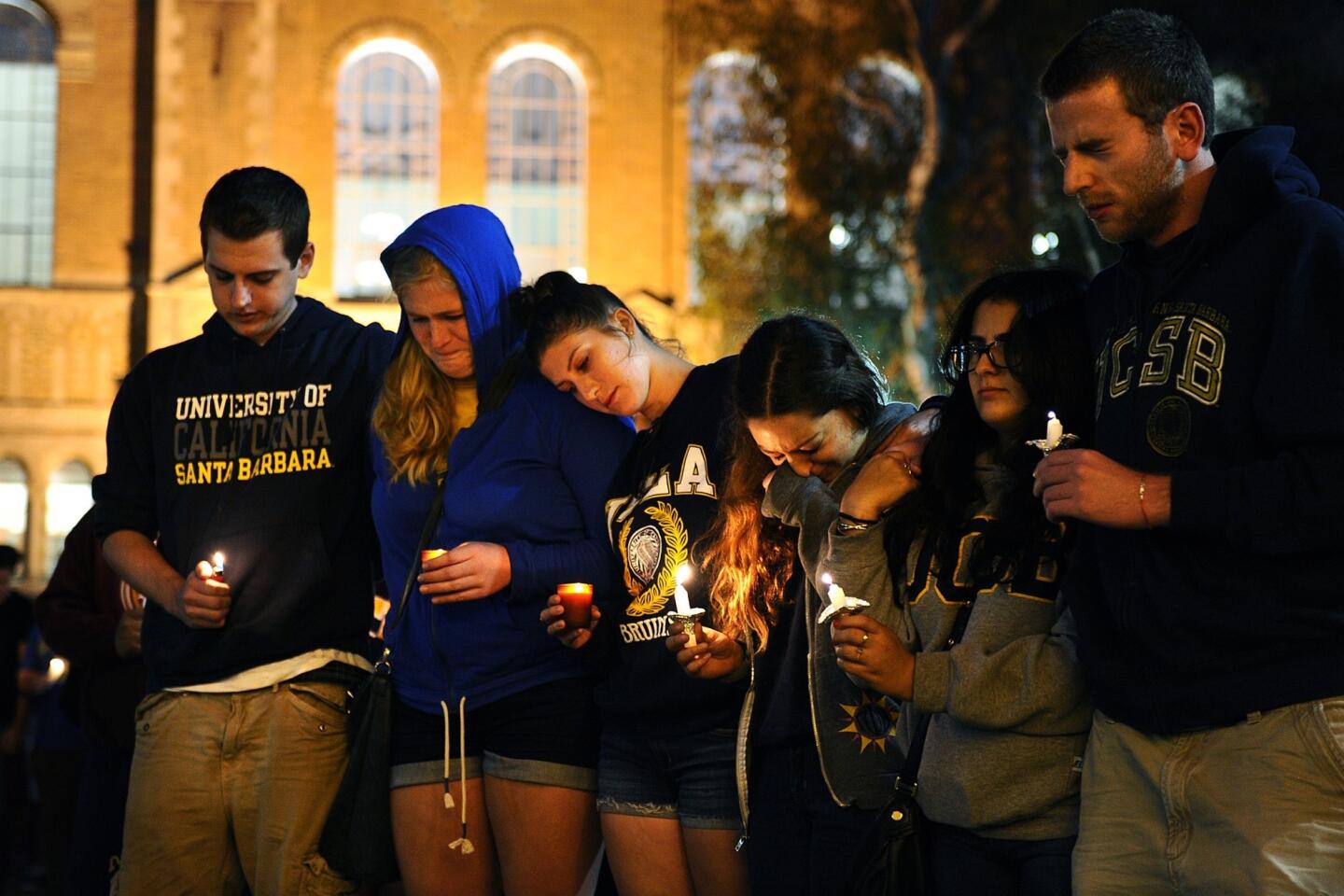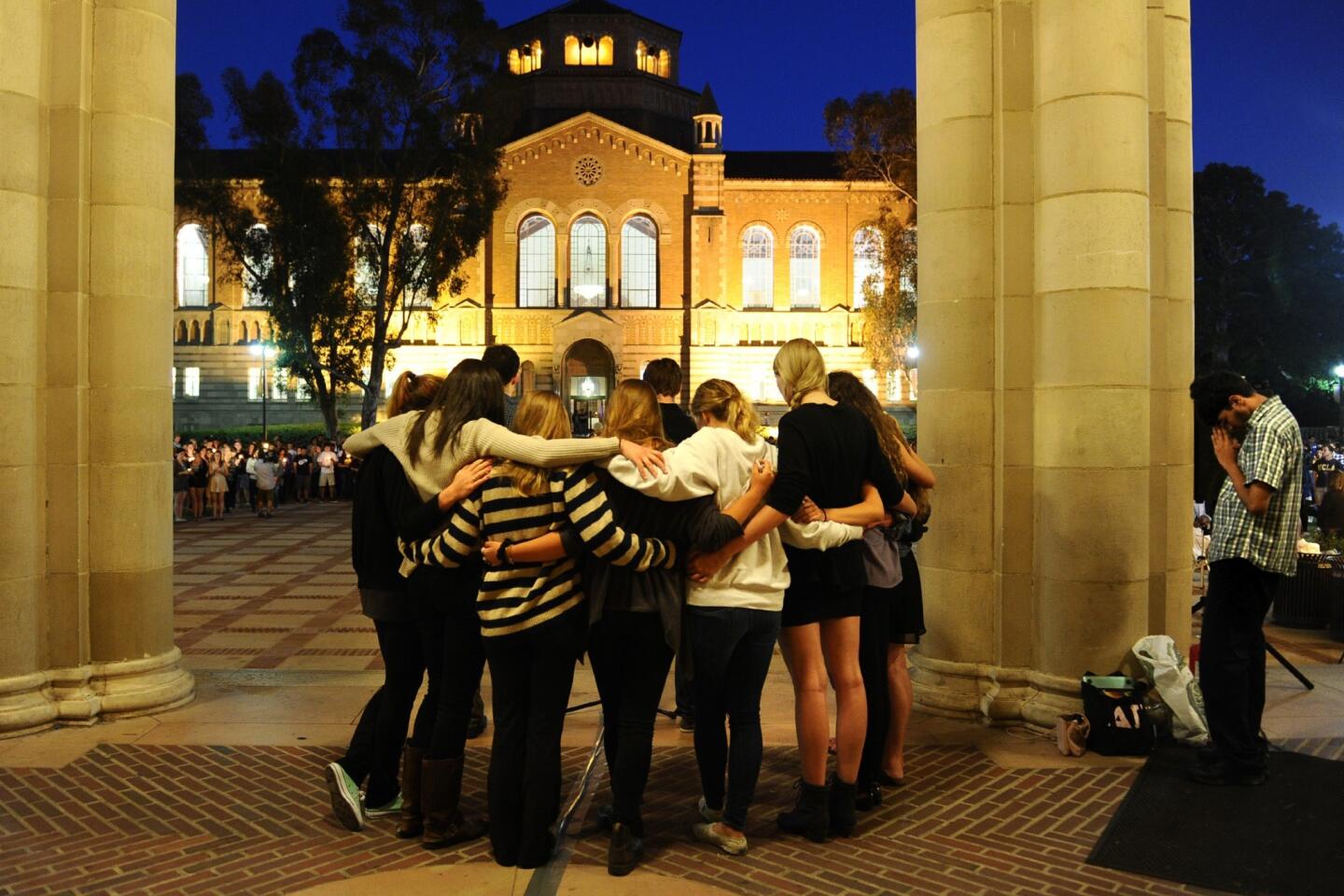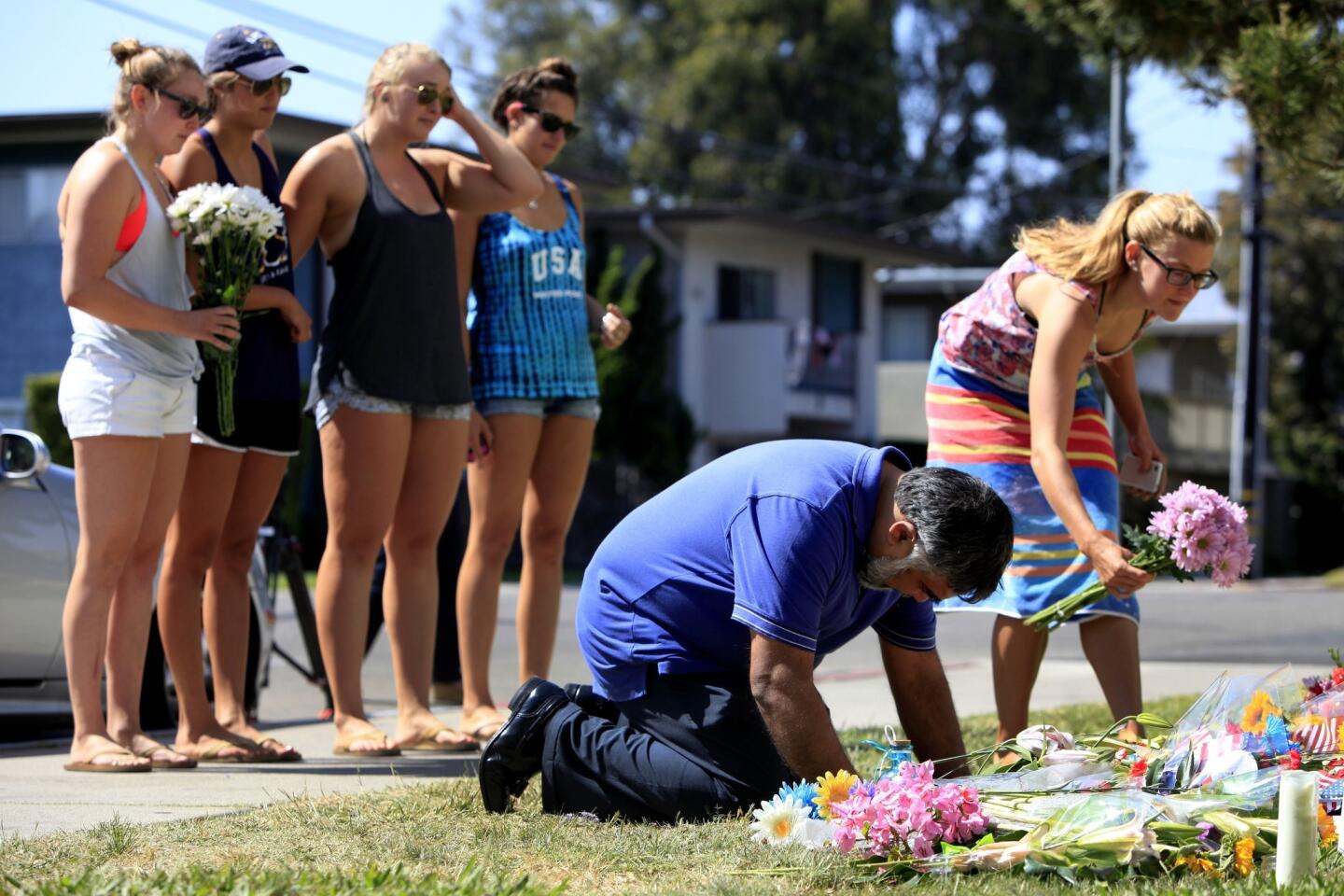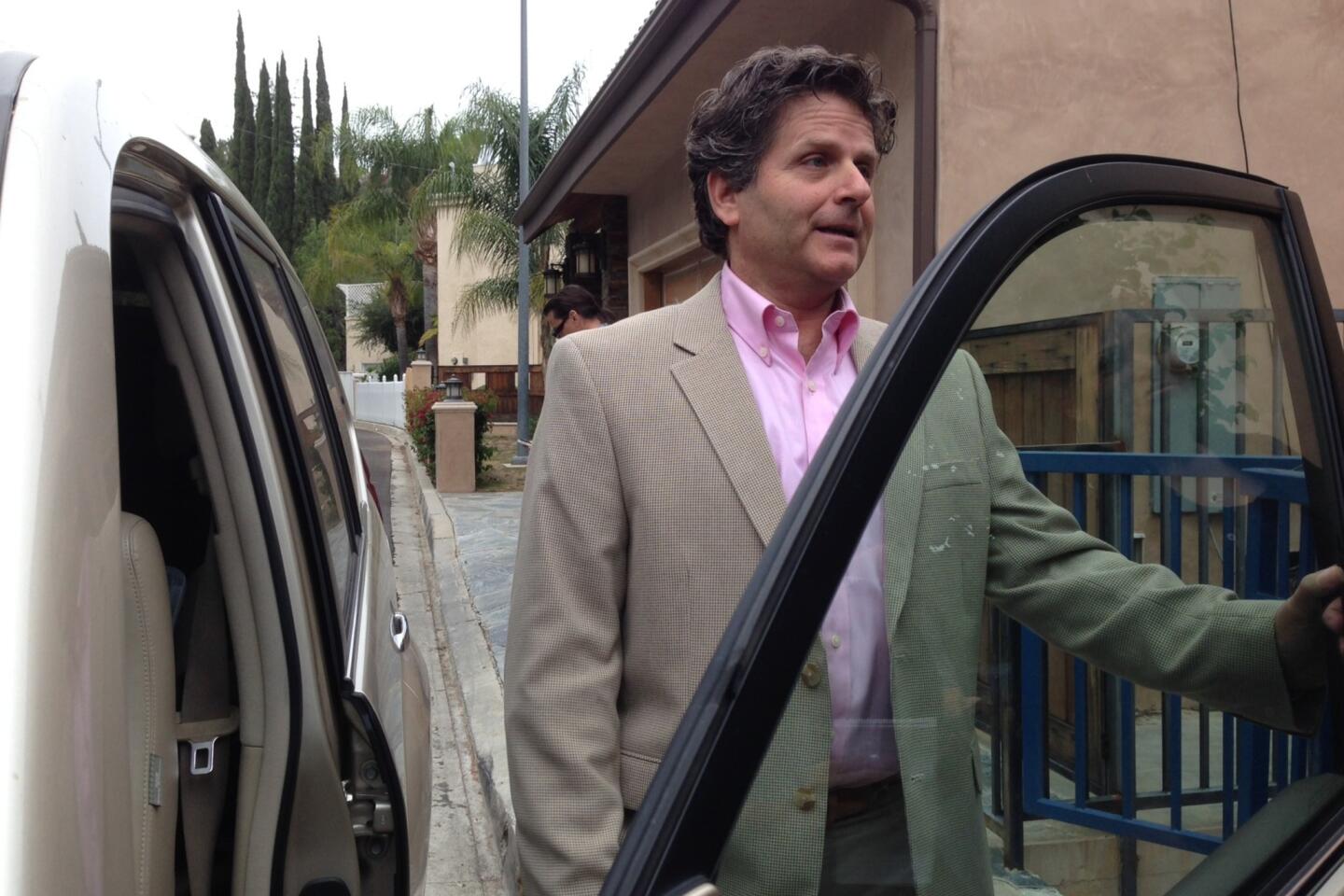Mass killings prompt lawmakers to propose new firearms bill
Shocked by the weekend’s mass killings near UC Santa Barbara, state lawmakers on Tuesday proposed a new way to temporarily prevent potentially violent individuals from buying or owning guns.
Legislators also advanced dozens of unrelated bills, including one that would largely repeal a voter-approved ban on bilingual education in California, a proposed requirement that condoms be worn by actors in pornographic films and a bill that would allow lawmakers to be suspended without pay for misconduct.
The new firearms bill would create a “gun violence restraining order,” using the same process employed for restraining orders in cases of domestic violence.
If notified by a subject’s family or friends that someone could harm himself or others, law enforcement officers would be able to petition a judge to grant a restraining order that could prohibit possession or purchase of a gun.
Assemblywoman Nancy Skinner (D-Berkeley) said last weekend’s Isla Vista rampage illustrated gaps in the state’s gun and mental health laws. The family of Elliot Rodger, the shooter, had raised concerns with law enforcement about his mental state, and Santa Barbara County sheriff’s deputies visited Rodger at his apartment in April but took no action against him.
“Here we had a situation where a mother was aware that her son was a danger to himself and others. She tried to intervene,” Skinner said.
Sam Paredes, executive director of the Gun Owners of California, called the proposal (AB 1014) offered by multiple lawmakers including Skinner, a “knee-jerk reaction.”
California already has a system to prevent mentally ill people from obtaining weapons, he noted: an involuntary psychiatric detention known as a “5150.”
Separately, Senate President Pro Tem Darrell Steinberg (D-Sacramento) said he would propose expanding the protocol and training provided to law enforcement officers to help them identify potentially dangerous individuals.
Later in the day, the Senate approved a bill that would ask California voters to rescind parts of the state’s a ban on bilingual education, with supporters saying that children in other countries are successfully learning multiple languages.
The upper house voted in favor of putting a measure on the ballot in November 2016 that would repeal major parts of a 1998 law approved by voters that requires schools to teach in English.
“Children who participate in multilingual programs not only outperform their peers, they also have higher earning potential when they enter the workforce,” said Sen. Ricardo Lara (D-Bell Gardens), author of the bill (SB 1174). It now goes to the Assembly.
The bill divided Republicans, eight of whom, including Sen. Jim Nielsen of Gerber, voted against it. Nielsen said the risk of bilingual education is “putting children out who are functionally illiterate in two languages.”
The Senate also voted to ask Californians in November of this year to approve a constitutional amendment giving each legislative house the power, on a two-thirds vote, to suspend a member without pay for misconduct.
The measure is in response to criminal charges filed against Democratic Sens. Roderick Wright, Ronald Calderon and Leland Yee, who have been suspended with pay.
In the Assembly, members approved a measure that would require condoms to be used in all adult films produced in California.
Assemblyman Isadore Hall III (D-Compton), the measure’s author, said he sought to bring workplace safety standards to the adult film industry.
“A minimum level of safety in the workplace should not be negotiated,” Hall said on the Assembly floor.
The measure, opposed by the industry, would also require performers to be tested for sexually transmitted infections no more than 14 days before filming.
Assemblyman Tim Donnelly (R-Twin Peaks), the only lawmaker to speak against the bill on the floor, said he worried about its ramifications.
Noting that the bill (AB 1576) could affect independent contractors in the industry, Donnelly said he believed “the implications of whatever is passed in this bill will be felt by every other small business owner in the state of California.”
More to Read
Start your day right
Sign up for Essential California for news, features and recommendations from the L.A. Times and beyond in your inbox six days a week.
You may occasionally receive promotional content from the Los Angeles Times.







